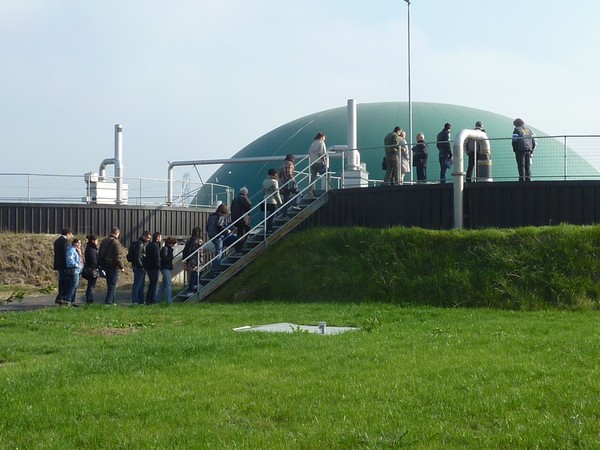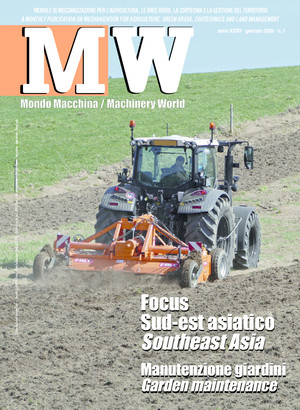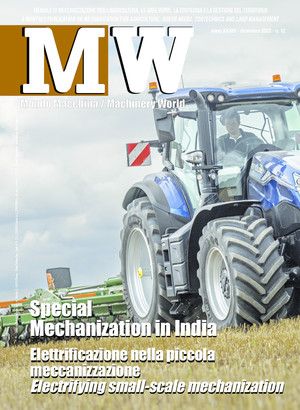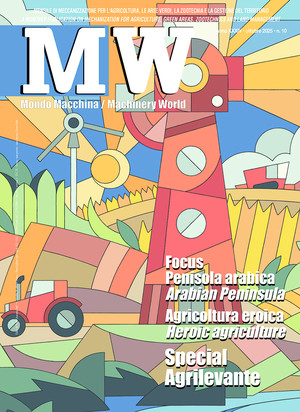
Sustainability and bioenergy, highlighted in Bari
Italy's National Energy Strategy (NES) recognizes that renewable energy sources and bioenergy are the most important elements for meeting energy demand, while respecting climate and the environment. The NES was defined through a wide consultation which involved the relevant institutional bodies, businesses, experts and citizens. The Agrilevante exhibition will give an opportunity for a debate on topics concerning the environment and the energy sphere, so as to involve the primary sector in a process of gradual decarbonization
The importance given by the recent approval of Italy’s National Energy Strategy on environmental issues, that are now in the centre of attention of the international debate, was positively seen by those who followed the COP 21 negotiations on climate change in Paris, the agreements achieved and following developments. The combination of energy and sustainable development seems increasingly stable and it is not a case that the introduction of the full-bodied text of the NES was jointly signed by the Minister of the Economic Development Calenda and the Minister of the Environment Galletti. According to this fundamental strategic document, the future of Italy will have to focus on a deep transformation of the energy system towards an increasing efficiency in the use of resources, production and energy distribution. For example, in the next 12 years coal plants will be phased out, while renewable energy sources will have to cover the 27% of all final consumption, with the following setting of targets: – electricity 48 – 50% (33.5% in 2015); thermal energy 28 – 30% (19.2% in 2015); transport 17 – 19% (6.4% in 2015).
In general, while the NES recognizes bioenergy a number of unquestionable advantages, on the other hand it places restrictions that risk to leave potentially unexpressed a development that might be useful for the Italian environment and society. In fact, with regard to biomass power production, despite highlighting the benefits of the circular economy and the reduction of emissions, the NES is oriented to investments in very small plants (until 70 kW). Indeed, these small biomass plants are, from a technical and economic point of view, off-market solutions. With regard to the biomass resources, only plants using waste, agricultural or urban residues and second-crop products will be encouraged in order to limit distortions in the agricultural food chain. In terms of biomass power generation, a sector that is widely developed in Italy, the focus will be on those technologies able to guarantee high efficiency and control standards over widely spread and mature emissions. With these assumptions, the sector of biomass for power generation could give a contribution to the achievement of the national target of heath production from renewable sources, undervalued in the NES. Finally, in the transport sector the focus is on biomethane and biofuels from organic urban residues, agricultural and animal residues, etc. Considering that bioenergy shall play a central role in Italy’s energy recovery, it is necessary to promote the good practices that have a positive impact on the environment. Therefore, during the Agrilevante exhibition, a large space will be dedicated to the issue of biomass for energy purposes and to agronomic innovations designed to combat climate change. Conferences, workshops and meetings will animate the days of the exhibition.
A rich programme of initiatives has been organized to further explore the possibilities of producing renewable energy through the use of products, residues and waste from agricultural activities.
Experts, associations’ representatives, producers and public institutions will outline the state of the agricultural industry and the development strategies to be undertaken.
A special focus will be dedicated to several regional initiatives (“Operative Groups” on bioenergy) as well as to European ones (such as the uP_running projects, Agroinlog, GreenGain, ISAAC etc.), together with some pilot projects in Puglia.
Meetings will be held in Hall 5 of the Congress Centre and at the Stand of the Puglia Region, in Pavilion 20.
The initiative is sponsored by ITABIA in collaboration with FederUnacoma, Puglia Region, ENEA, University of Foggia, the Regional Agro-food District (DARE), University of Bari, Green Chemistry Bionet Association, Legambiente and CNR IIA.
The full program of initiatives, promoted by ITABIA can be consulted on the web site www.agrilevante.eu.








